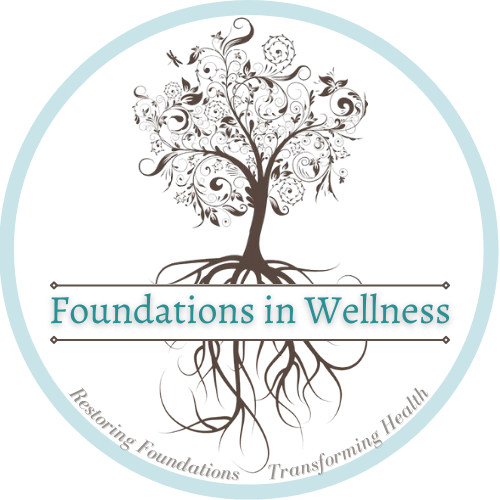
Introduction
Cardiovascular disease remains the leading cause of mortality worldwide, with millions suffering from heart attacks and strokes annually. Amidst the rising number of stent insertions and bypass surgeries, it’s crucial to address the myths surrounding cholesterol, statins, and heart disease to pave the way for a more informed approach to cardiovascular health.
Unraveling the Truth About Cholesterol and Heart Health
Cholesterol Myths vs. Facts
Several myths surround cholesterol, statins, and heart disease. It’s important to debunk these misconceptions to foster a more accurate understanding of cardiovascular health. Here are some common myths:
- Myth: All cholesterol is bad.
- Fact: Cholesterol is essential for bodily functions, including hormone production and cell structure. While high levels of LDL cholesterol (often labeled as “bad” cholesterol) are associated with increased heart disease risk, HDL cholesterol (considered “good” cholesterol) plays a protective role by removing excess cholesterol from the bloodstream.
- Myth: Lowering cholesterol alone prevents heart disease.
- Fact: While managing cholesterol is important, heart disease is a complex condition influenced by various factors, including genetics, inflammation, and lifestyle choices. A holistic approach, addressing multiple risk factors, is crucial for preventing heart disease.
- Myth: All statins are the same.
- Fact: There are various types of statins, and individuals may respond differently to each. It’s essential for healthcare providers to tailor medication choices based on the patient’s specific health profile and potential side effects.
- Myth: Statins have no side effects.
- Fact: While statins are effective in reducing cholesterol, they may have side effects for some individuals, including muscle pain, digestive issues, and an increased risk of diabetes. Regular communication with healthcare providers is crucial to monitor and manage any potential side effects.
- Myth: If I take statins, I can eat whatever I want.
- Fact: Medication alone is not a license for unhealthy lifestyle choices. A balanced diet, regular exercise, and other heart-healthy habits remain important even when taking statins.
- Myth: Only older adults need to worry about cholesterol.
- Fact: Heart disease can affect individuals of all ages. It’s important to assess and manage cardiovascular risk factors, including cholesterol levels, throughout life.
- Myth: Dietary cholesterol directly correlates with blood cholesterol.
- Fact: The relationship between dietary cholesterol and blood cholesterol is more complex than previously thought. While dietary choices can influence cholesterol levels, genetics and overall lifestyle play significant roles.
- Myth: Cholesterol-lowering foods can replace medication.
- Fact: While a heart-healthy diet is beneficial, it may not be a standalone solution for individuals with significantly elevated cholesterol levels. Medication may be necessary, especially in cases of familial hypercholesterolemia or other high-risk conditions.
- Myth: Everyone with high cholesterol needs medication.
- Fact: Lifestyle modifications, including dietary changes and exercise, can be effective in managing cholesterol levels. Medication is typically recommended when lifestyle changes alone are insufficient or for individuals at higher cardiovascular risk.
Debunking Cholesterol Myths: A Clearer Picture of Heart Health

In the United States, a significant portion of adults over 40 are prescribed statins, yet numerous myths persist about cholesterol and heart disease. It’s crucial to dispel these myths for a more informed approach to cardiovascular wellness. Let’s explore some of these myths and the facts that counter them
In the United States, a significant portion of adults over 40 are prescribed statins, yet numerous myths persist about cholesterol and heart disease. It’s crucial to dispel these myths for a more informed approach to cardiovascular wellness. Let’s explore some of these myths and the facts that counter them:
- Myth: All Cholesterol is Harmful
- Truth: Cholesterol is vital for various bodily functions, such as hormone production and cell structure. While high levels of certain LDL cholesterol types are linked to heart disease risk, HDL cholesterol is beneficial, helping remove excess cholesterol from the blood. It’s the oxidized and dense LDL particles that are concerning.
- Myth: Lowering Cholesterol Alone Prevents Heart Disease
- Truth: Heart disease is multifaceted, influenced by genetics, inflammation, and lifestyle. Managing cholesterol is important, but a comprehensive approach addressing multiple risk factors is key to prevention.
- Myth: All Statins Are Identical
- Truth: Different statins exist, and individual responses vary. Personalized medication choices based on health profiles and potential side effects are essential.
- Myth: Statins Are Free of Side Effects
- Truth: While effective in reducing cholesterol, statins can have side effects like muscle pain, digestive issues, increased diabetes risk, and even dementia. Regular monitoring with healthcare providers is crucial.
- Myth: On Statins, Diet Doesn’t Matter
- Truth: Medication isn’t a free pass for unhealthy eating. A balanced diet and heart-healthy habits are still vital.
- Myth: Only the Elderly Need to Worry About Cholesterol
- Truth: Heart disease can affect all ages. Monitoring and managing cholesterol is important throughout life.
- Myth: Dietary Cholesterol Directly Raises Blood Cholesterol
- Truth: The relationship is complex. Genetics and lifestyle play significant roles alongside diet.
- Myth: Cholesterol-Lowering Foods Can Replace Medication
- Truth: Diet is beneficial but not always sufficient, especially in high-risk cases.
- Myth: Everyone with High Cholesterol Needs Medication
- Truth: Lifestyle changes can effectively manage cholesterol. Medication is recommended for those where lifestyle adjustments are insufficient or for higher risk individuals.
The site also discusses the importance of specific biomarkers for assessing heart disease risk and offers a list of recommended tests. Christopher Wilson, a Certified Nutritionist, shares insights on heart health and the role of nutrition in preventing heart disease.
Debunking Common Cholesterol Myths for Better Heart Health
Debunking Cholesterol Myths: Understanding the Truth for Heart Health
In the United States, a significant number of adults over 40 are prescribed statins, yet many myths about cholesterol and heart disease persist. Dispelling these myths is crucial for a more informed approach to cardiovascular wellness.
The Reality Behind Cholesterol and Heart Disease Myths
- Myth vs. Fact: Not All Cholesterol is Bad
- Fact: Cholesterol is essential for hormone production and cell structure. HDL cholesterol is beneficial, while certain LDL types are linked to heart disease.
- Comprehensive Approach to Heart Disease Prevention
- Fact: Heart disease prevention requires a holistic approach, considering genetics, lifestyle, and inflammation, not just cholesterol levels.
- Understanding the Diversity of Statins
- Fact: Various statins exist, and individual responses can vary. Tailoring medication to individual health profiles is key.
- Recognizing Statins’ Side Effects
- Fact: Statins can cause side effects like muscle pain and increased diabetes risk. Regular monitoring is essential.
- The Importance of Diet Even When on Statins
- Fact: A balanced diet remains crucial for heart health, even when taking statins.
- Cholesterol Concerns Aren’t Just for the Elderly
- Fact: Heart disease can affect all ages, making cholesterol management important throughout life.
- Dietary Cholesterol’s Complex Role
- Fact: The impact of dietary cholesterol on blood levels involves genetics and lifestyle factors.
- Can Diet Alone Manage High Cholesterol?
- Fact: While diet is important, it may not suffice for those with significantly elevated cholesterol levels.
- Medication for High Cholesterol: Not Always Necessary
- Fact: Lifestyle changes can be effective in managing cholesterol. Medication is advised for those at higher risk or where lifestyle changes are insufficient.
Key Biomarkers for Heart Disease Risk Assessment
Christopher Wilson, a Certified Nutritionist, emphasizes the importance of specific biomarkers in assessing heart disease risk. He offers a list of recommended tests for a comprehensive health evaluation.
Empowering Your Heart Health Journey
Understanding the truths behind cholesterol myths is vital for effective heart disease prevention and management. By staying informed and proactive, you can make healthier choices for your heart.


